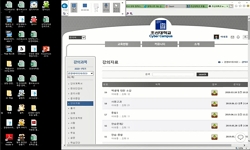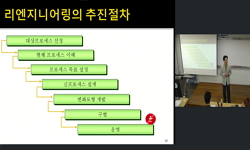The 20th century was a period of significant development in the field of management studies. This article provides a comprehensive overview of the global management practices that were spearheaded by the United States, tracing the historical birth, ba...
http://chineseinput.net/에서 pinyin(병음)방식으로 중국어를 변환할 수 있습니다.
변환된 중국어를 복사하여 사용하시면 됩니다.
- 中文 을 입력하시려면 zhongwen을 입력하시고 space를누르시면됩니다.
- 北京 을 입력하시려면 beijing을 입력하시고 space를 누르시면 됩니다.
https://www.riss.kr/link?id=A109419426
- 저자
- 발행기관
- 학술지명
- 권호사항
-
발행연도
2024
-
작성언어
English
- 주제어
-
KDC
912
-
자료형태
학술저널
-
수록면
17-36(20쪽)
- 제공처
-
0
상세조회 -
0
다운로드
부가정보
다국어 초록 (Multilingual Abstract)
The 20th century was a period of significant development in the field of management studies. This article provides a comprehensive overview of the global management practices that were spearheaded by the United States, tracing the historical birth, background, and evolution of management studies throughout the century. The following research conclusions can be drawn: Firstly, management is heavily influenced by its surrounding environment. The global management processes of the past century were shaped by factors such as war, technological advancements, changes in business models, and climate change, as well as the preferences and actions of influential figures in positions of power. Secondly, the essence of management is uncertainty. It is a complex and universal concept, with no fixed criteria for what constitutes successful management. Instead, it presents ongoing and ever-evolving challenges. Thirdly, the effectiveness of management determines its longevity. Those management practices that are closely tied to major historical forces tend to endure for longer periods of time. In summary, from the beginning of management science focusing on production, rules, and efficiency to the later increasing discovery of the importance of organization, people, and the environment, management in each period has its value. Whether it comes from the philosophy of military and war or from the philosophy of the collision of Eastern and Western cultures, it continually evolves and adapts to its surroundings, driving progress in human society and exerting a profound influence on global politics, the economy, social life, and the well-being of all individuals.
목차 (Table of Contents)
- ABSTRACT
- Ⅰ. Birth of Management
- II. Management Process
- 1. 1900~1920 Efficiency and Modern Era
- 2. 1921~1940 Organization and Human Nature
- ABSTRACT
- Ⅰ. Birth of Management
- II. Management Process
- 1. 1900~1920 Efficiency and Modern Era
- 2. 1921~1940 Organization and Human Nature
- 3. 1941~1960 War and Postwar
- 4. 1961~1980 Military Strategy and Hundreds Flowers Bloom
- 5. 1981~2000 Constantly Strive for Perfection and Power Balance
- 6. From Knowledge Management to ESG after 2000
- 7. Management Trends
- III. Conclusion
- Reference
동일학술지(권/호) 다른 논문
-
질적 메타분석을 통해 살펴본 2019 개정 누리과정 실행에 유아교사의 경험 : 놀이지원을 중심으로
- 건국대학교 KU중국연구원
- Wu Fan
- 2024
-
- 건국대학교 KU중국연구원
- Wang Chen
- 2024
-
Feasibility of Northeast Asian Economic and Trade Cooperation in Global Value Chains
- 건국대학교 KU중국연구원
- Yang Jingjing
- 2024
-
- 건국대학교 KU중국연구원
- Dai Xuedong
- 2024




 eArticle
eArticle






